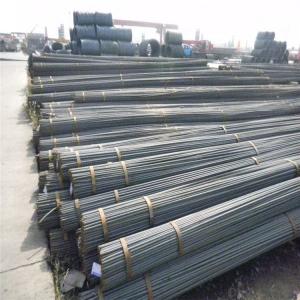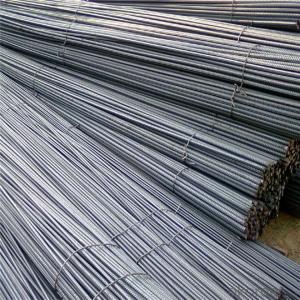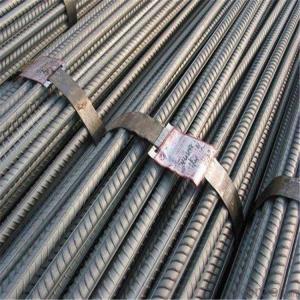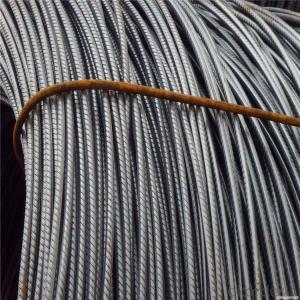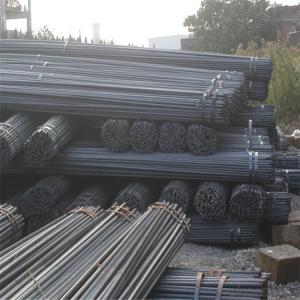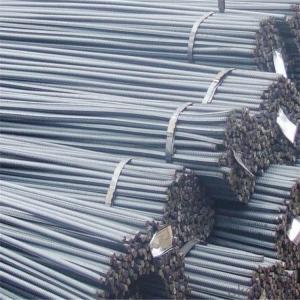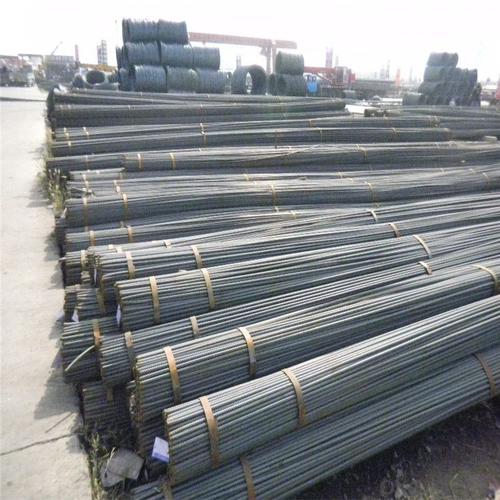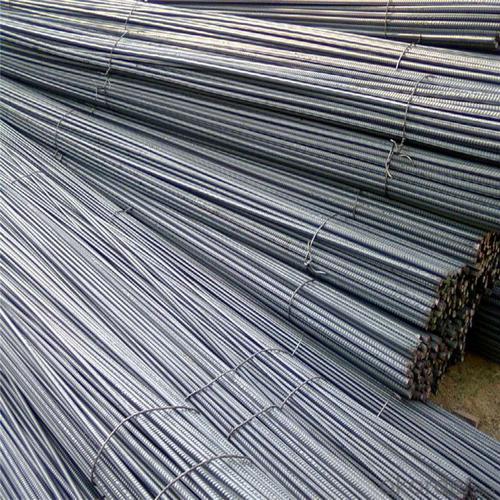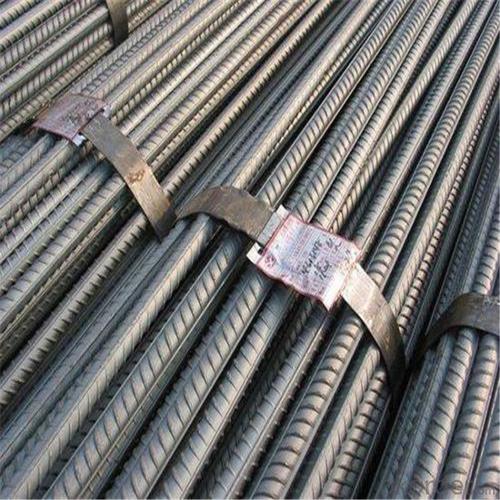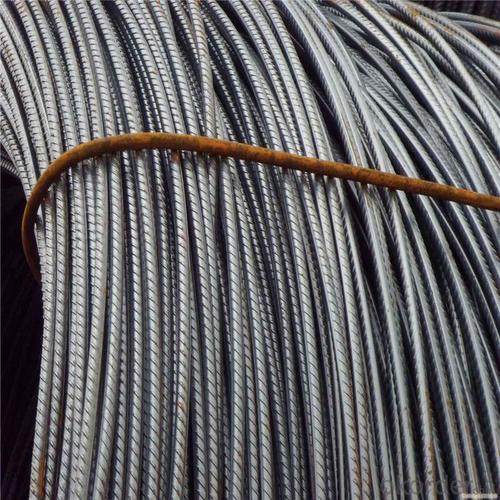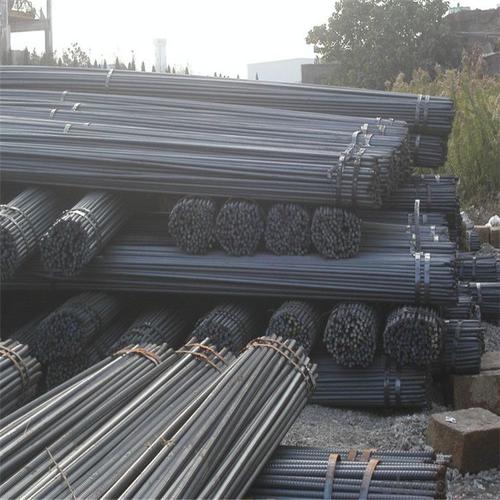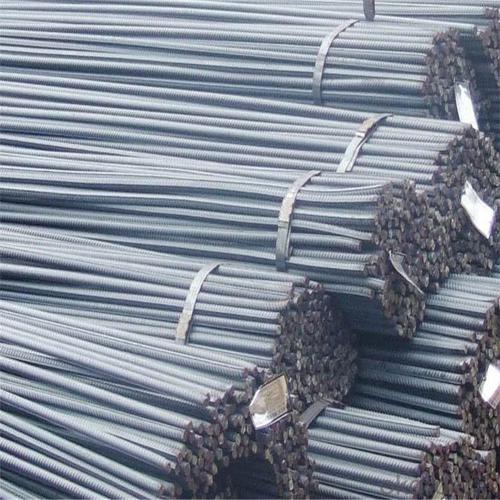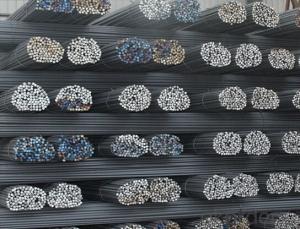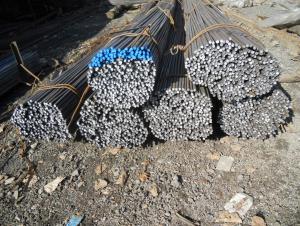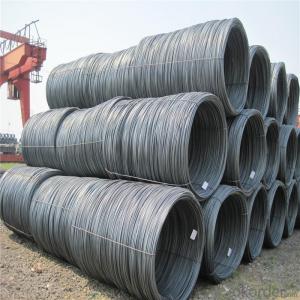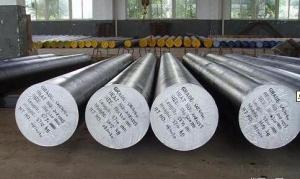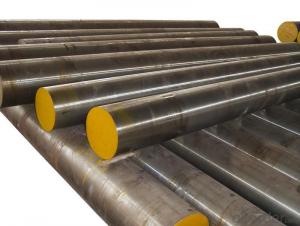460B Steel Round Bars for BS/EN Standard
- Loading Port:
- Tianjin
- Payment Terms:
- TT or LC
- Min Order Qty:
- 100 m.t.
- Supply Capability:
- 500000 m.t./month
OKorder Service Pledge
OKorder Financial Service
You Might Also Like
Specification
460B Steel Round Bars
Description of 460B Steel Round Bars
1, Diameter: 5.5mm-10mm 460B Steel Round Bars
10m- 40mm 460B Steel Round Bars
2, Length: 6m, 9m, 12m or customized
3, Standard: GB, ASTM, AISI, SAE, DIN, JIS, EN
OEM technology - send detailed technical parameters for accurate quotation.
2, Produce Process: smelt iron - EAF smelt billet - ESR smelt billet -
hot rolled or forged to get the steel round bar and plate
3, Heat Treatment: annealing, normalizing, tempering, quenching
4, Surface Treatment: Black
5, Quality Assurance: We accept third party inspection for all orders.
You can ask testing organizations such as SGS, BV, etc. to test our products before shipping.
Chemical Composition of 460B Steel Round Bars
Grade | Technical data of the original chemical composition(%) | |||||
Reinforcing steel bar HRB335 | C | Mn | Si | S | P | B |
≤0.25 | ≤1.60 | ≤0.80 | ≤0.045 | ≤0.045 | >0.0008 | |
Physics Capability | ||||||
Yield Strength(N/cm2) | Tensile Strength(N/cm2) | Elongation(%) | ||||
≥ 335 | ≥490 | ≥16 | ||||
Reinforcing steel bar HRB400 | C | Mn | Si | S | P | B |
≤0.25 | ≤0.16 | ≤0.80 | ≤0.045 | ≤0.045 | 0.04-0.12 | |
Physics Capability | ||||||
Yield Strength(N/cm2) | Tensile Strength(N/cm2) | Elongation(%) | ||||
≥ 400 | ≥ 570 | ≥ 14 | ||||
Products Show of 460B Steel Round Bars
Company Information
CNBM International Corporation is the most important trading platform of CNBM group.
Whith its advantages, CNBM International are mainly concentrate on Cement, Glass, Iron and Steel, Ceramics industries and devotes herself for supplying high qulity series of refractories as well as technical consultancies and logistics solutions.


F A Q
1, Your advantages?
professional products inquiry, products knowledge train (for agents), smooth goods delivery, excellent customer solution proposale
2, Test & Certificate?
SGS test is available, customer inspection before shipping is welcome, third party inspection is no problem
3, Factory or Trading Company?
CNBM is a trading company but we have so many protocol factories and CNBM works as a trading department of these factories. Also CNBM is the holding company of many factories.
4, Payment Terms?
30% TT as deposit and 70% before delivery.
Irrevocable L/C at sight.
5, Trading Terms?
EXW, FOB, CIF, FFR, CNF
6, After-sale Service?
CNBM provides the services and support you need for every step of our cooperation. We're the business partner you can trust.
For any problem, please kindly contact us at any your convenient time.
We'll reply you in our first priority within 24 hours.
- Q: What are the different quality control measures for special steel production?
- There are several quality control measures implemented during special steel production, including rigorous inspections at various stages of the manufacturing process, such as raw material testing, chemical composition analysis, and heat treatment verification. Additionally, non-destructive testing techniques, such as ultrasonic testing and magnetic particle inspection, are employed to detect any defects or inconsistencies in the steel's structure. Furthermore, dimensional and surface quality checks are performed to ensure that the final product meets the required specifications and standards.
- Q: What are the main advantages of using special steel in the marine industry?
- The main advantages of using special steel in the marine industry are its high strength and durability, corrosion resistance, and ability to withstand extreme conditions. Special steel provides the necessary structural integrity to withstand the harsh marine environment, including exposure to saltwater, waves, and impact forces. It also offers excellent resistance to corrosion, which is crucial for maintaining the integrity and longevity of marine structures. Moreover, special steel's ability to withstand extreme temperatures and pressures makes it suitable for various marine applications, such as shipbuilding, offshore structures, and marine equipment.
- Q: How does special steel contribute to the power generation industry?
- Special steel plays a crucial role in the power generation industry by providing the necessary strength, durability, and resistance to extreme temperatures and corrosive environments. It is used in the construction of turbines, generators, and other critical components, ensuring the efficient and reliable operation of power plants. Additionally, special steel's high heat resistance and excellent mechanical properties enable power plants to operate at higher temperatures, increasing energy efficiency and reducing emissions.
- Q: What are the specific requirements for special steel used in the nuclear fuel industry?
- The nuclear fuel industry imposes stringent and demanding requirements on special steel. These requirements are crucial to guarantee the safety and reliability of nuclear power plants. Here are some of the key specifications for special steel used in this sector: 1. Withstanding high temperatures: The special steel employed in the nuclear fuel industry must have the ability to endure high temperatures without compromising its structural integrity. This is of utmost importance as nuclear reactors generate intense heat during their operation. 2. Resisting corrosion: The nuclear fuel environments can be highly corrosive due to the presence of hot and pressurized water, radiation, and chemical reactions. Special steel used in this industry must exhibit exceptional resistance to corrosion in order to prevent deterioration and maintain safety. 3. Resisting radiation: The nuclear fuel industry involves exposure to radiation. Special steel must possess outstanding resistance to radiation damage and embrittlement in order to ensure long-term structural integrity and avoid any risk of failure. 4. High strength and toughness: Special steel used in the nuclear fuel industry should possess high strength and toughness to withstand the extreme conditions experienced within a nuclear reactor. This guarantees that the steel can endure the pressure and stress exerted on it during reactor operation. 5. Low neutron absorption: Neutron absorption is a critical factor in nuclear reactors. Special steel used in this industry should exhibit low neutron absorption properties to prevent interference with nuclear reactions and maintain reactor efficiency. 6. Stringent quality control and traceability: The manufacturing and fabrication of special steel for the nuclear fuel industry must conform to strict quality control procedures to ensure consistency and reliability. Traceability is also pivotal in identifying the origin and history of the steel, enabling comprehensive inspections and assessments. Meeting these specific requirements is crucial for the safe and efficient operation of nuclear power plants. Special steel used in the nuclear fuel industry must undergo rigorous testing, certification, and quality control processes to ensure compliance with these stringent specifications.
- Q: Can special steel be recycled?
- Yes, special steel can be recycled. Special steel, also known as alloy steel, is a type of steel that contains additional elements such as chromium, nickel, or molybdenum to enhance its properties. These additional elements do not hinder the recyclability of the steel. The recycling process for special steel is similar to that of regular steel. The steel is collected from various sources, such as scrap metal yards, demolition sites, or end-of-life products. It is then processed to remove impurities, sorted, and shredded into smaller pieces. The shredded steel is melted in a furnace to form molten steel, which is then cast into new products or used as raw material for manufacturing processes. Recycling special steel offers several benefits. Firstly, it helps conserve natural resources as it reduces the need for new steel production. Secondly, it reduces energy consumption and greenhouse gas emissions associated with steel manufacturing. Additionally, recycling steel helps decrease waste generation and promotes a circular economy by utilizing existing materials. Overall, special steel, like any other type of steel, can be recycled effectively, contributing to environmental sustainability and resource conservation.
- Q: How does special steel contribute to the fatigue resistance of products?
- Special steel contributes to the fatigue resistance of products by providing enhanced strength, durability, and resistance to wear and tear. The unique composition and manufacturing processes of special steel result in improved mechanical properties, such as higher tensile strength and hardness, which help products withstand repeated loading and stress cycles without failure. Additionally, special steel can be engineered to have specific microstructures that enhance its resistance to fatigue, preventing the growth of cracks and ensuring longer product lifespan.
- Q: How does special steel contribute to the industrial equipment industry?
- The industrial equipment industry greatly relies on special steel for its superior strength, durability, and ability to withstand harsh conditions. Specially engineered steel alloys possess exceptional properties that suit a wide range of applications in industrial equipment. One of the main advantages of special steel is its ability to endure high temperatures and pressure, making it ideal for producing components like boilers, turbines, and heat exchangers. With its high heat resistance, special steel ensures efficient and reliable operation in demanding environments, enhancing performance and safety. Moreover, special steel is well-known for its excellent corrosion resistance, making it suitable for manufacturing equipment that encounters corrosive substances. This includes chemical processing equipment, oil and gas pipelines, and marine structures. By utilizing special steel in these applications, the industrial equipment industry can prolong operational lifetimes, reduce maintenance costs, and minimize the risk of catastrophic failures. Special steel also contributes to the industry by enabling the production of equipment with superior mechanical properties. Its unique composition and heat treatment processes increase strength, toughness, and wear resistance. Consequently, industrial equipment made from special steel can handle heavy loads, endure extreme conditions, and provide long-lasting performance. Furthermore, special steel alloys can be customized to meet specific requirements, allowing for the production of tailor-made components. This flexibility empowers the industrial equipment industry to design and manufacture equipment that precisely meets the diverse needs of sectors such as aerospace, automotive, energy, and construction. The versatility and adaptability of special steel play a crucial role in driving innovation and technological advancements within the industry. To summarize, special steel significantly contributes to the industrial equipment industry by providing exceptional strength, durability, resistance to harsh conditions, and customized solutions. Its unique properties make it an essential material for manufacturing a wide range of equipment, ultimately enhancing performance, reliability, and safety across various sectors.
- Q: How is special steel used in the manufacturing of industrial machinery?
- Special steel is used in the manufacturing of industrial machinery due to its exceptional strength, durability, and resistance to high temperatures and corrosion. It is commonly employed to create components such as gears, shafts, bearings, and tools, ensuring optimal performance and longevity of the machinery in demanding industrial environments.
- Q: How does special steel perform in nuclear applications?
- Due to its exceptional properties and performance, special steel holds significant value in nuclear applications. Nuclear reactors operate under extreme conditions, enduring high temperatures, pressures, and radiation exposure. Designed specifically for these demanding circumstances, special steel, also known as nuclear-grade steel or reactor-grade steel, can withstand them. One of the primary characteristics of special steel lies in its remarkable strength and toughness. This quality enables it to resist deformation and fractures, even under the intense stress and pressure present in nuclear reactors. Additionally, special steel exhibits superior heat resistance, ensuring its structural integrity remains intact at elevated temperatures. This feature is critical to prevent any potential failures or structural damage that could jeopardize the safety and efficiency of the nuclear system. Moreover, special steel possesses exceptional resistance to corrosion and oxidation. The highly corrosive environments within nuclear reactors, caused by various chemical compounds and high-temperature water or steam, make this corrosion resistance indispensable. It ensures the longevity and reliability of reactor components while minimizing the risk of radioactive material release. Furthermore, special steel is designed to have low neutron absorption properties. By reducing neutron absorption, special steel helps optimize the performance and efficiency of the nuclear system. This is vital as neutron absorption can lead to the formation of unwanted isotopes that could interfere with nuclear reactions or contribute to the production of radioactive waste. Overall, special steel is a critical material in nuclear applications. Its provision of necessary strength, heat resistance, corrosion resistance, and low neutron absorption ensures the safe and efficient operation of nuclear reactors. Its exceptional performance guarantees the integrity of the system, minimizes accident risks, and contributes to the overall sustainability of nuclear energy.
- Q: How does special steel perform in high-temperature hydrogen environments?
- Special steel is specifically designed to perform well in high-temperature hydrogen environments. It exhibits excellent resistance to hydrogen embrittlement and maintains its mechanical properties even at elevated temperatures. This makes it a reliable and durable material choice for applications in such environments.
Send your message to us
460B Steel Round Bars for BS/EN Standard
- Loading Port:
- Tianjin
- Payment Terms:
- TT or LC
- Min Order Qty:
- 100 m.t.
- Supply Capability:
- 500000 m.t./month
OKorder Service Pledge
OKorder Financial Service
Similar products
Hot products
Hot Searches
Related keywords
